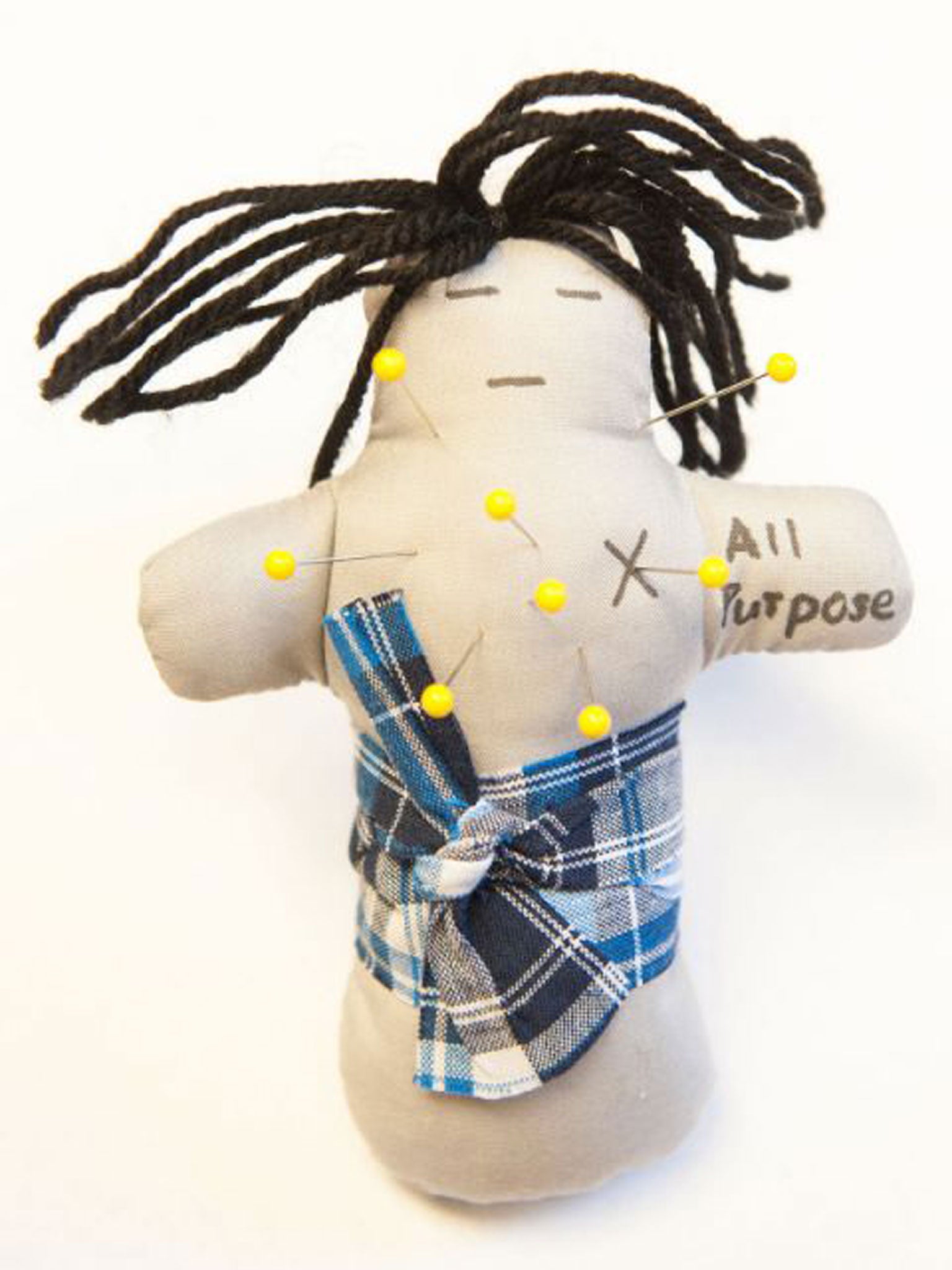Spoiling for a row? Then check your sugar levels
Couples more likely to have angry rows when hungry, says voodoo-doll test

Low levels of blood sugar can increase the risk of a niggling irritation with your partner turning into a blazing row according to a study suggesting a physiological basis for marital disharmony.
Scientists have found that glucose levels in the blood can accurately predict whether someone is likely to feel angry enough with their spouse to secretly stick pins in a voodoo doll meant to represent them in psychological tests.
People with low glucose levels were also more likely than individuals with high levels to blast their partners with loud noise if they had just competed against them in a game, according to a second experiment.
The findings support the widely held belief that hungry people are more likely than well fed individuals to be angry. They also provide a scientific basis for suggesting that food and diet may play an important role in aggressive tendencies in certain social situations where people spend a time together, whether at home, in schools or in prisons.

“People can relate to this that when they get hungry, they get cranky. We found that being 'hangry’ – hungry and angry – can affect our behaviour in a bad way, even in our most intimate relationships,” said Professor Brad Bushman of Ohio State University in Columbus, Ohio.
The three-year study involved 107 married couples who were assessed for their general relationship satisfaction in order to see how happy there were with one another overall.
Over a period of 21 days, each couple monitored their blood glucose levels in the morning and evening and were given a voodoo doll and 51 pins, which they were supposed to stick in the doll when they were on their own depending on how angry they felt towards their spouse.
The study, published in the journal Proceedings of the National Academy of Sciences, showed a clear link between low levels of blood glucose and the number of pins that a spouse is likely to stick into the voodoo doll representing their partners, Professor Bushman said.
“When they had lower blood glucose, they felt angrier and took it out on the dolls representing their spouse. Even those who reported they had good relationships with their spouses were more likely to express anger if their blood glucose levels were lower,” he said.
In a second experiment at the end of the 21-day period, the couples took part in a laboratory test where they were asked to play a computer game against their partner where the winner could blast their spouse with a loud noise through headphones.
In fact, the scientists had arranged it so that each individual played against a computer rather than their spouse without their knowing it so that they were sure to lose about half the games they played. Each time they won, they were allowed to determine how loud the noise would be and for how long.
“Within the ethical limits of the lab, we gave these participants a weapon that they could use to blast their spouse with unpleasant noise,” Professor Bushman said.
Again, when blood sugar levels fell, individuals were more likely to give longer and louder blasts of noise than when sugar levels were higher. Comparing the first and second part of the study, the scientists also found that those people who were stuck more pins in the partners’ dolls were more likely to show real aggression in the form of louder and longer noises.
Professor Bushman suggested that the effect could be explained by the energy needed to maintain the self-control to overcome aggressive tendencies. With low blood glucose, there is less energy available to the brain and therefore a greater chance of losing self-control.
“It’s simple advice but it works: before you have a difficult conversation with your spouse, make sure you’re not hungry,” he said.
Join our commenting forum
Join thought-provoking conversations, follow other Independent readers and see their replies
Comments